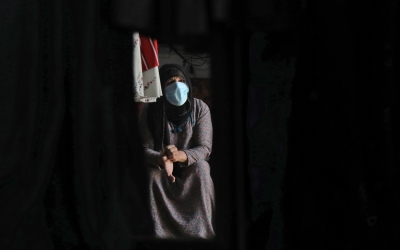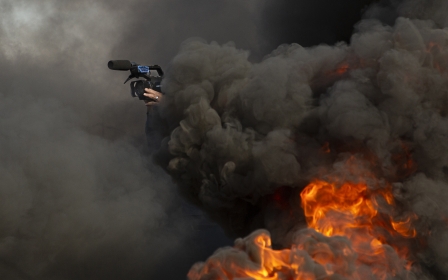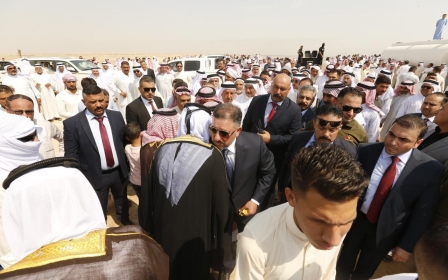US lauds deal to connect Iraq to GCC electric grid

A deal between Washington, Baghdad and six Gulf states to connect Iraq's electricity grids to the Gulf Cooperation Council (GCC) grid is moving forward, almost a year after the plan's inception.
The US State Department said in a statement on Thursday that the six countries that make up the Gulf Cooperation Council Interconnection Authority (GCCIA) - Saudi Arabia, Kuwait, Bahrain, Qatar, Oman and the UAE - affirmed their shared support for a project to supply electricity to Iraq.
The deal is set to help Baghdad with its chronic electricity shortage and help wean it off Iran's power supply.
"The Government of Iraq, Gulf Cooperation Council, and United States look forward to increased close economic and energy cooperation between the United States, Iraq and the GCC countries, as a basis for peace, development, and prosperity in the region," the State Department said.
The department added that the US "is committed to facilitating" the project "and providing support where needed".
The US has a politically motivated interest in Iraq's electricity shortages because the country relies heavily on neighbouring Iran for its energy.
US sanctions forbid other countries from purchasing Iranian energy, so Iraq has had to request sanctions waivers from Washington every few months in order to continue its imports without drawing the ire of the US.
The last such waiver was announced in early May for a period of 120 days.
Despite the GCCIA plan and the current waiver's September expiration date, Iran announced last month that it had signed a two-year energy-exporting contract with Iraq, expected to give Baghdad an immediate boost.
It was unclear if the US had approved the two-year contract between Baghdad and Tehran.
Iraq's massive electricity shortage
Iraq’s estimated demand for electricity is about 24 gigawatts, but currently, it is only able to produce 15 gigawatts.
The landmark agreement between Iraq and the GCCIA is expected to dramatically increase Iraq's supply, providing up to 500 megawatts of electricity to its overstretched grid, local news agency Kurdistan 24 reported.
According to the agreement, in order to supply the electricity to Iraq, the GCC will finance the $220m required to build a 300km (190 mile) transmission line from Kuwait to Iraq’s southern port of Al-Faw, the agency said.
While the deal was actually penned last September under former Iraqi prime minister Adil Abdul Mahdi on the sidelines of the Iraq Energy Forum in Baghdad, until now there had been little public discourse about the plan.
Last year, the GCCIA also signed an agreement with Jordan and Egypt to look into the prospects of connecting them to the network.
Middle East Eye delivers independent and unrivalled coverage and analysis of the Middle East, North Africa and beyond. To learn more about republishing this content and the associated fees, please fill out this form. More about MEE can be found here.





